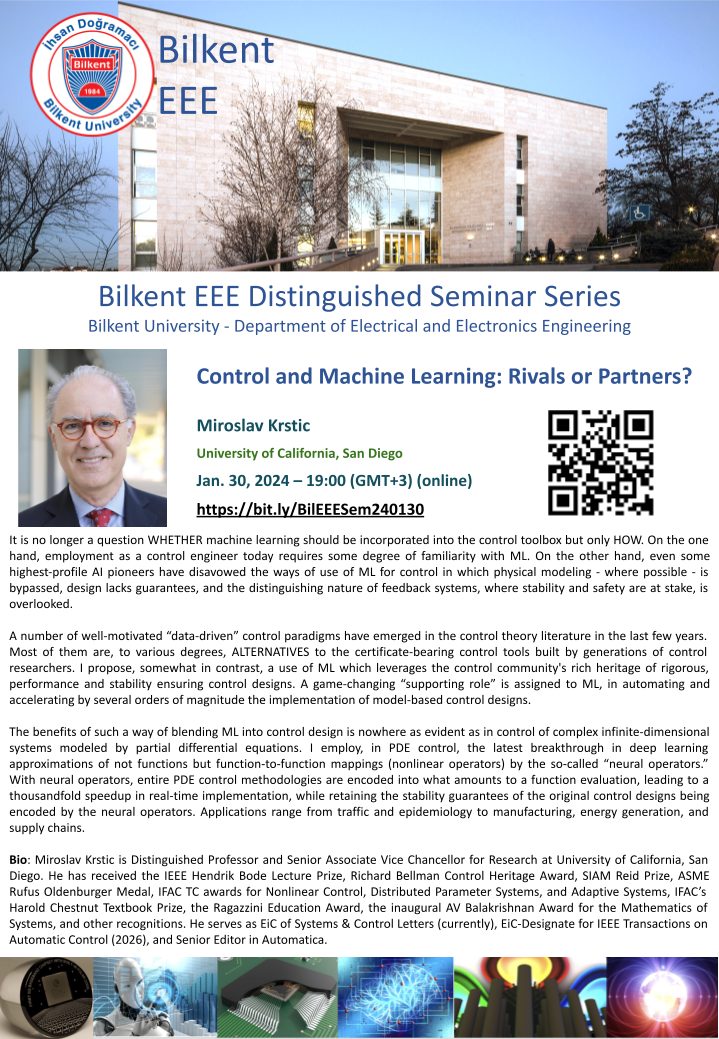
Miroslav Krstic
University of California, San Diego
Date/Time: Jan 30, 2024 – 19:00 (online)
Control and Machine Learning: Rivals or Partners?
It is no longer a question WHETHER machine learning should be incorporated into the control toolbox but only HOW. On the one hand, employment as a control engineer today requires some degree of familiarity with ML. On the other hand, even some highest-profile AI pioneers have disavowed the ways of use of ML for control in which physical modeling – where possible – is bypassed, design lacks guarantees, and the distinguishing nature of feedback systems, where stability and safety are at stake, is overlooked.
A number of well-motivated “data-driven” control paradigms have emerged in the control theory literature in the last few years. Most of them are, to various degrees, ALTERNATIVES to the certificate-bearing control tools built by generations of control researchers. I propose, somewhat in contrast, a use of ML which leverages the control community’s rich heritage of rigorous, performance and stability ensuring control designs. A game-changing “supporting role” is assigned to ML, in automating and accelerating by several orders of magnitude the implementation of model-based control designs.
The benefits of such a way of blending ML into control design is nowhere as evident as in control of complex infinite-dimensional systems modeled by partial differential equations. I employ, in PDE control, the latest breakthrough in deep learning approximations of not functions but function-to-function mappings (nonlinear operators) by the so-called “neural operators.” With neural operators, entire PDE control methodologies are encoded into what amounts to a function evaluation, leading to a thousandfold speedup in real-time implementation, while retaining the stability guarantees of the original control designs being encoded by the neural operators. Applications range from traffic and epidemiology to manufacturing, energy generation, and supply chains.
Bio: Miroslav Krstic is Distinguished Professor and Senior Associate Vice Chancellor for Research at University of California, San Diego. He has received the IEEE Hendrik Bode Lecture Prize, Richard Bellman Control Heritage Award, SIAM Reid Prize, ASME Rufus Oldenburger Medal, IFAC TC awards for Nonlinear Control, Distributed Parameter Systems, and Adaptive Systems, IFAC’s Harold Chestnut Textbook Prize, the Ragazzini Education Award, the inaugural AV Balakrishnan Award for the Mathematics of Systems, and other recognitions. He serves as EiC of Systems & Control Letters (currently), EiC-Designate for IEEE Transactions on Automatic Control (2026), and Senior Editor in Automatica.